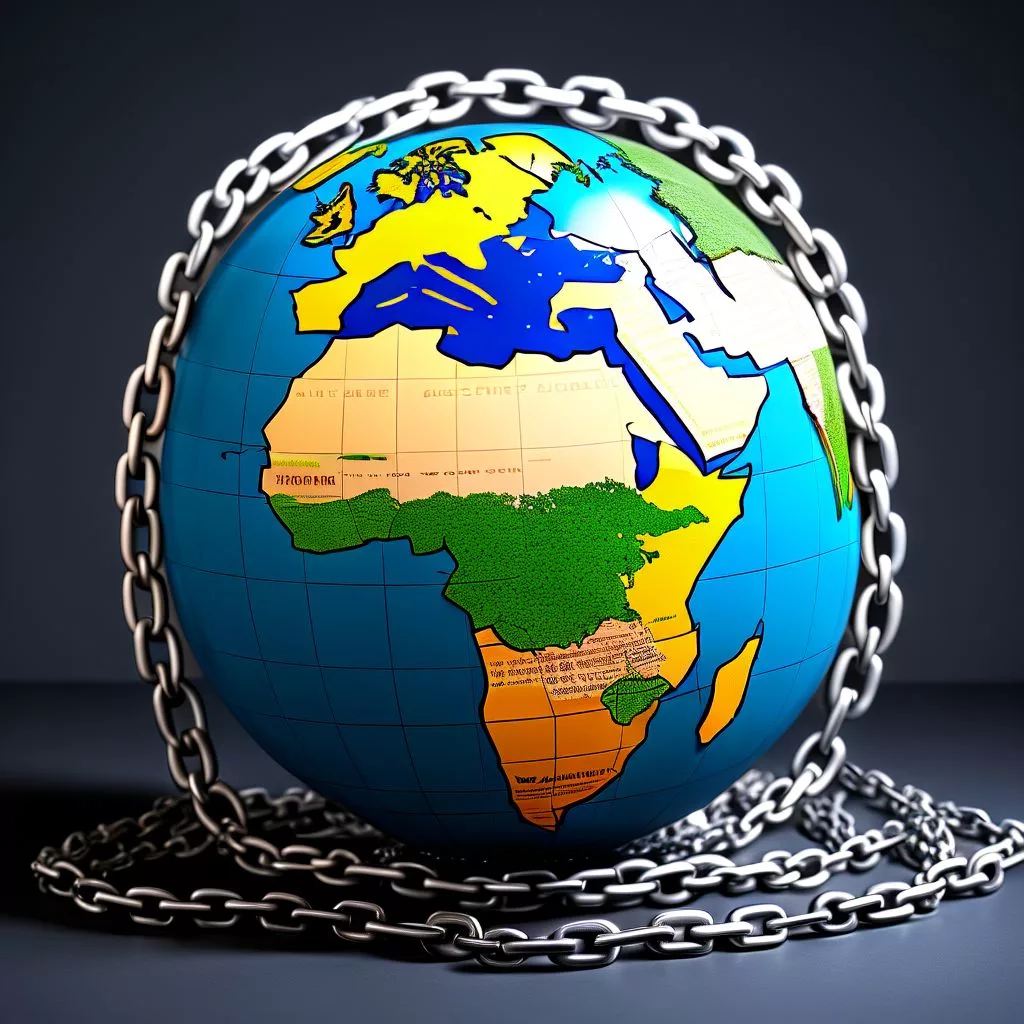South Africa is making bold moves in its foreign policy, shifting closer to Russia, China, and Iran, which is putting its long-time friendship with the United States at serious risk. This change could lead to harsh consequences, like economic sanctions that might hurt South Africa’s economy and limit its ability to trade with other countries. U.S. lawmakers are increasingly worried, suggesting penalties for South African officials and even introducing bills that could further strain relations. As tensions rise, South Africa must carefully balance its new alliances with the potential fallout from its decisions, all while the world watches closely.
What are the implications of South Africa’s shifting foreign policy on its relationship with the United States?
South Africa’s foreign policy shift towards Russia, China, and Iran risks severe economic consequences, including potential U.S. sanctions and loss of access to the SWIFT system. This change strains bilateral relations, affecting trade dynamics and foreign investment, while provoking bipartisan criticism in the U.S.
A Shifting Alliance: South Africa and the Global Powers
In recent months, South Africa’s foreign policy has dramatically shifted, placing the nation at odds with its historically close ally, the United States. This strategic pivot has not gone unnoticed by Washington, which is now contemplating severe sanctions that could significantly impact South Africa’s economy and international standing. The Hudson Institute, a notable Washington-based think tank with ties to former President Donald Trump’s administration, has raised alarms about South Africa’s deepening ties with Russia, China, and Iran, as well as its controversial legal challenge against Israel at the International Court of Justice, according to Business Tech.
The potential consequences of these actions are severe. The United States could implement comprehensive sanctions or even cut South Africa off from the Society for Worldwide Interbank Financial Telecommunication (SWIFT) system. This crucial global financial network enables international transactions, and losing access would severely hamper South Africa’s ability to conduct cross-border trade, effectively isolating its economy. This drastic measure was previously used against Russia in 2022, illustrating the significant impact it can have.
Joshua Meservey, a senior fellow at the Hudson Institute, has indicated that broad sanctions are a serious option. While he personally favors targeted sanctions to mitigate the impact on ordinary South Africans, the US’s patience appears to be waning. Congressman Ronny Jackson has already introduced the US-South Africa Bilateral Relations Review Act of 2025. This proposed legislation would grant the President authority to penalize South African officials who show support for nations deemed adversaries by the US. Jackson has been vocal about his concerns, stating that South Africa’s alignment with regimes like Russia and Iran is a betrayal of its longstanding relationship with the United States.
Legislative Measures and Growing Tensions
The proposed bill requires the State Department to draft a classified list of senior South African officials and African National Congress (ANC) leaders involved in corruption or human rights violations. This list could serve as a basis for sanctions, visa restrictions, and asset freezes, further escalating the diplomatic conflict. The bill highlights the growing mistrust and friction between the two nations, signaling a significant shift in US foreign policy toward South Africa.
Compounding these tensions is the controversy surrounding South Africa’s Expropriation Act. This legislation allows the government to seize land without compensation under specific conditions. Critics, including Trump and several Republican lawmakers, argue that the law targets white farmers and encourages racial persecution. Congressman Troy Nehls has introduced the “Afrikaner Act,” which aims to grant special refugee status in the US to Afrikaans-speaking South Africans. Nehls argues that this measure protects an ethnic minority under threat, echoing Trump’s claims that white farmers face violent dispossession.
However, South African officials reject these accusations. They maintain that the Expropriation Act only applies in rare, public-interest cases and includes comprehensive legal protections for landowners. Public Works Minister Dean Macpherson recently confirmed that no land had been expropriated in the past year. Despite these assurances, lobby groups like AfriForum continue to dispute official statistics, perpetuating narratives that depict South Africa as hostile to minorities. This disconnect between official statements and public perception further complicates the diplomatic landscape.
Trump’s Response and Economic Implications
The escalating drama has not gone unnoticed by Trump, who has publicly expressed his frustration. In a scathing post on Truth Social, he accused the South African government of enabling violence and land seizures. Trump even vowed to skip the upcoming G20 summit in Johannesburg, criticizing the South African administration for allegedly endangering white farmers and their families. Analysts suggest that Trump’s absence from the G20 summit could affect discussions on global economic policies and international cooperation, highlighting the profound implications of this diplomatic rift.
Interestingly, despite the rising tensions, Trump has made an unexpected move by reducing tariffs on South African exports from 30% to 10%. Analysts believe this gesture aims to apply economic pressure while avoiding a full-blown crisis. This strategic concession indicates a nuanced approach, balancing punitive actions with opportunities for economic engagement.
South Africa now finds itself at a critical crossroads. Its recent foreign policy maneuvers have strained relations with Washington and highlighted the complexities of its global alliances. By strengthening ties with nations like Russia, China, and Iran, South Africa risks alienating traditional allies and inviting severe economic consequences. The Hudson Institute’s warnings and the proposed US legislative measures reflect a deteriorating bilateral relationship marked by mutual suspicion and escalating recriminations.
The Broader Implications and Future Trajectory
The broader implications of this diplomatic standoff extend far beyond immediate economic concerns. South Africa’s stance on global issues, its domestic policies, and its international alliances will significantly influence its future trajectory on the world stage. Potential sanctions and the ensuing diplomatic fallout could reshape its economic landscape, affecting everything from trade dynamics to foreign investment.
In this volatile context, South Africa must navigate a complex web of international relations, balancing its autonomy with the realities of global power politics. The stakes are high, and the outcomes uncertain, as Pretoria grapples with the diplomatic and economic challenges posed by its evolving foreign policy.
Through this intricate dance of diplomacy, sanctions, and strategic alliances, the world watches closely. The repercussions will resonate far beyond South Africa’s borders, underscoring the delicate balance of global geopolitics, where national decisions and international relationships are intertwined in complex and often unpredictable ways.
FAQ on South Africa’s Foreign Policy Gamble
What are the major shifts in South Africa’s foreign policy?
South Africa is pivoting towards Russia, China, and Iran, moving away from its historically close relationship with the United States. This shift has raised concerns among U.S. lawmakers and could lead to significant diplomatic and economic ramifications.
How might South Africa’s new alliances affect its economy?
The shift towards these new alliances poses risks of economic sanctions from the United States, potentially harming South Africa’s economy and limiting its ability to trade internationally. There is also a danger of losing access to the SWIFT system, which could isolate South Africa’s economy from global markets.
What legislative measures are being proposed in the U.S. in response to South Africa’s foreign policy changes?
U.S. lawmakers are considering measures such as the US-South Africa Bilateral Relations Review Act of 2025, which would allow the President to impose penalties on South African officials who support nations considered adversaries. This includes creating a classified list of officials involved in corruption or human rights violations.
How has the Expropriation Act contributed to tensions between the U.S. and South Africa?
The Expropriation Act allows the South African government to seize land without compensation in specific cases, which critics argue targets white farmers. This has led to accusations of racial persecution and further strained relations with the U.S., with some lawmakers proposing refugee status for affected Afrikaners.
What are the potential consequences of a deterioration in U.S.-South Africa relations?
A decline in relations could lead to comprehensive U.S. sanctions, impacting trade, foreign investment, and economic growth in South Africa. Diplomatic isolation might also affect South Africa’s standing on the global stage, complicating its international relationships.
How is the international community reacting to South Africa’s foreign policy shift?
The international community is closely monitoring South Africa’s strategic pivot. Analysts suggest that this shift may have broader implications for global geopolitics, influencing international alliances and affecting economic policies worldwide. The situation is evolving, with significant attention on how South Africa navigates its diplomatic challenges.












